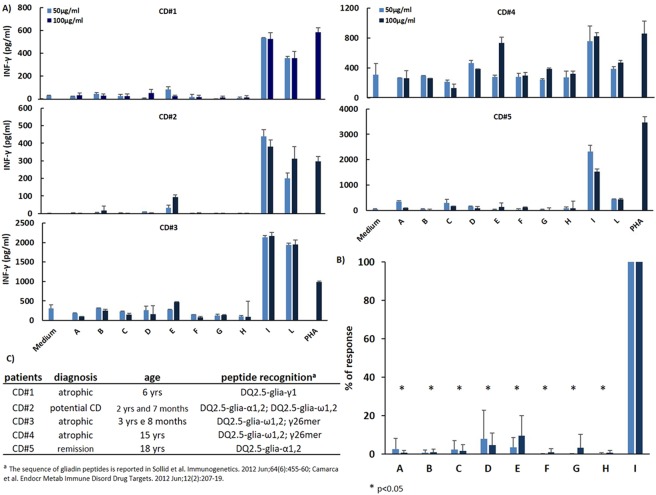Figure 7.
The digestion with E40 strongly reduced the immunostimolatory capacity of gliadin on intestinal T cells. Gliadin purified from hexaploid wheat was treated with E40 in the absence (samples A and B) and in presence of gastrontestinal proteases (samples C–E) at the conditions specified in Table 1. The enzymatic digests of gliadin were next deamidated by tTG treatment and assayed for the stimulatory capability on intestinal T cells. T-cell activation was determined by the measurements of IFN-γ production. All gliadin digests were assayed at 50 and 100 μg/ml. (A) Gliadin reactive T-cell lines obtained from jejunal biopsies of 5 different celiac subjects were assayed for recognition of E40-treated gliadin (samples A–H). Autologous EBV-transformed B cells were used as antigen presenting cells. Untreated gliadin digests (samples I and L) and phytohemagglutenin (PHA) were used as positive controls. Each panel is a representative experiment out of three done for each T-cell line. (B) Percent of T-cell response to E40-treated gliadin digests were calculated on the E40-untreated gliadin digests (sample I). The data are mean responses of T-cell lines from 5 different CD patients. (C) Characteristic of CD subjects enrolled in the study as source of gliadin-reactive intestinal T-cell lines. The profile of gliadin peptides recognized by each T-cell line is reported. Unpaired Student T test was used to assess the statistical significance. *p < 0.05.

